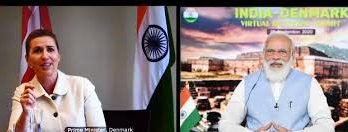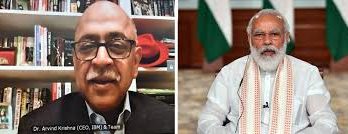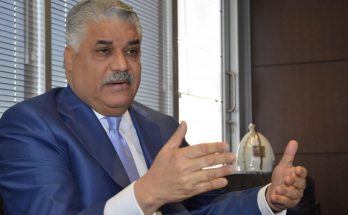
A laboratory of many failed and not so successful social and political experiments and land of dystopian realities resulting from utopian dreams, Latin America is often viewed as a sub-continent of missed opportunities, elusive dawns and false prophets. Once home to some of the most advanced civilisations in the world-the Aztecs, Mayans and Incas- the region has become synonymous with unstable political models, widening rich-poor divide and social turmoil. The region has been the scapegoat for many, used and abused to profusely benefit ‘the strongest’ and to impose their will. Latin America evokes a very sharp and contradictory response globally. The cluster of the 20-odd countries, generally viewed as one entity, is like a boiling cauldron with some very unique ‘magical’ elements carefully ignored by the Western world. The region has also exemplified promising models like the absence of a serious border conflicts (a global phenomenon) as also the absence of religious fundamentalism plaguing the large parts of the globe today. More importantly, the 1967 Treaty for the Prohibition of Nuclear Weapons in Latin America and the Caribbean, also known as Tlatelolco Treaty, makes it the first nuclear free zone in the world. Latin America has also cultivated a unique cultural and diplomatic tradition that emphasizes peaceful and diplomatic solution of conflicts and adherence to international laws and treaties.
Another unique feature of the region is its ability to consistently produce literature entwined with politics. Latin America has been the birthplace of many great writers and Nobel Laureates who have produced a plethora of revolutionary literary works with global acclaim. The consequent liaisons between literature and politics have their roots in the tumultuous history of Latin America. Due to the region’s unceasing and unabating desire to break from the shackles of European imperialism and later the United States’ neo-colonialism, to establish a national identity and to create a peaceful existence for themselves in the midst of tragic and chaotic social realities, a complexly intertwined relationship between art and politics has emerged.
The dramatic political events throughout the region’s history offer a kind of a ‘treasure trove’ of ideas, concepts, and perspectives for the literary imagination. Literature has played the key role in the political arena, as has been proved by the works of various writers throughout the 19th and 20th centuries such as Domingo Faustino Sarmiento’s Facundo (1845), Octavio Paz’s The Labyrinth of Solitude (1950), Gabriel García Márquez’s The Autumn of the Patriarch (1975), and so on.
Writers have always exercised a certain degree of control and power in Latin America. From the major role played by Mario Vargas Llosa in publicising radical free-market ideas throughout the region to Garcia Marquez and Miguel Asturias writing about the phenomenon of the Caudillo (political strongmen), the old-time American dictator and turning him into a figure of ridicule. One of the great examples where one can see an actual impact of literature on politics is Domingo Sarmiento’s Life of Juan Facundo Quiroga: Civilisation and Barbarism (1845), which has been called one of the most important and quintessential books produced in Latin America.
The ideals and strategies described in the book in order to build a “civilised’’ Argentina were adopted to a great extent when Sarmiento became President in 1868. Sarmiento, a Unitarian, supported the aristocracy, criollos, the elite class with higher economic means and proposed a centralised form of government similar to the structure of monarchy. For him, in order to attain a “civilised” civic order, it is imperative to adopt the customs and ideals of the West, particularly their education models and implement immigration policies that would let Europeans (excluding Spain) settle in Argentina.
After he assumed the office, he immediately started to apply his democratic principles and liberal ideals with a strong opposition to any form of any dictatorial regimes, in building a new Argentina. He brought primary and secondary schools to a mostly illiterate Argentina, and also built many libraries and museums. He was very influenced by the education models of the US. According to his biographer Allison Bunkley, his presidency “marks the advent of the middle, or land-owning classes as the pivot power of the nation. The age of the gaucho (Argentine cowboy) had ended, and the age of the merchant and cattleman had begun.”
As once written by Octavio Paz, “not all intellectuals are writers but all (or almost all) writers are intellectuals”. Intellectuals (including writers) have always played an important role in the realm of politics, using criticism as the main tool to question the powerful and their power. In Latin America, especially during 19th and 20th centuries, intellectuals have had an enormous political influence, providing legitimacy to governments and vigour to various revolutions. It is due to their creation and interpretation of diverse ideas and images that the relevance is given to various ideologies in the public consciousness. They not only give impetus to the evolution of ideas that define the political drama, but they are also looked to for their knowledge and leadership. Octavio Paz was a novelist, essayist, poet, diplomat, literary critic, editor and a great political thinker. A man of many hats, Paz won the Nobel Prize in Literature in 1990 and is widely known for his critically acclaimed essays which are a blend between politics, history, culture, poetry, religion and society. His most famous and influential work, The Labyrinth of Solitude (1959) closely scrutinises the characteristics of the Mexican society, its identity crisis, and its alienation from the rest of the world and their subsequent solitude. They maintain their solitude by wearing “smiling masks” which hide their true identity, hence protecting themselves.
Paz has not only been a major critic of Mexico’s social and political life, he also served as an Ambassador to India from 1962 till his resignation in 1968 in protest against the Tlatelolco Massacre. He spoke against the government in international press which resulted in tremendous public outrage. He is noted as one of the earliest and famous supporters of a prudent transition towards democracy. The time and the context in which Paz wrote was dominated by the challenge of modernisation in its political, economic, social, and moral dimensions.
It is rare to see such a complex and profound relationship of writers and intellectuals with politics and yet it can be observed in abundance in Latin America than anywhere else in the world. One can see an underlying trend of involvement of such writers in the political realm in all spheres ranging from presidents like Domingo Sarmiento, Rómulo Gallegos, to diplomats like Octavio Paz and Carlos Fuentes.
This accentuates the role of intellectuals and writers alike in the policy making processes. But why is the relationship so impactful in Latin America? Why the region’s intellectuals and writers have been exercising so much control over polity? How has the experience been different from the former European colonies in Asia, who had more or less the same experience? Latin America, unlike Asia, has had many ruptures in its cultural past. The transplanted European culture wiped the region’s own cultural heritage and called it the New World with their new language, new traditions and the only ‘true’ religion. This however doesn’t coincide with what happened in Asia during the colonial period. They continued to maintain their own culture without any significant influence of the colonisers on their traditions, religion or language.
This differentiates Latin America which is united by a common language and culture in 18 countries, from Asia with no clear common heritage and also explains the subsequent identity crisis in the region. Novels in many romantic, naturalist or modernist traditions attempted to create and establish a sense of national identity and solidarity and mainly emphasised on the cosmopolitan view or the dichotomy of “civilisation or barbarism”. Moreover, the oligarchic influence on the society continued even after independence in Latin America and due to the ‘head-start’ it had on Asia, -many Latin American countries achieved independence almost 100 years before the Asian colonies- it didn’t identify with Asia or the Third World. Furthermore, Latin America has been viewed -particularly in the 20th century- as a continent exceedingly in need of change with new political models. This is mainly why intellectuals, academics, writers and artists have been significant in the socio-political sphere. Many contemporary writers like Octavio Paz, Carlos Fuentes, Gabriel Garcia Marquez, Julio Cortazar, Mario Vargas Llosa, to name a few, along with hundreds of other writers have contributed to the Latin American literary boom and feel that they are the political conscience of the society.
This perspective is not uncommon. Carlos Fuentes, a great thinker, writer and literary critic, has insisted time and again that the Latin American writer has a special responsibility to give voice to the voiceless. He has examined the relationship between Mexico’s social, literary and political life very closely which is reflected in many of his works. He was very much politically engaged -he was appointed Ambassador to France in 1975- yet he can be called more ideological than political. His most important works focus on the Mexican society and culture, its psychology and how it is viewed and placed in the global space. He wrote several short stories and novels which are centred on the political and social concerns in Mexico and Central America. His famous novel, Where the air is clear (1958), addresses the contemporary social problems in the Mexican life, the obsessive search for identity by the characters who are coming to terms with the post revolutionary world that is gradually recovering from the fallout of the early twentieth century revolution. Another one of his most acclaimed novels, The Death of Artemio Cruz (1962) is about the 1910 Mexican revolution and like the book, Where the air is clear, has references to the Mexican politics and history. He believed that literature does not have to declare a political agenda to have a social impact. He was strongly against the propagandistic use of literature for political gains of a particular sector. For him, literature is the liberating medium through which one’s voice could be heard.
This entanglement of the two domains is apparent in works of many writers, especially Mario Vargas Llosa.
“Why is it like this?” Mario Vargas Llosa, the Peruvian Novelist asked in an essay. “Why is it that instead of being basically creators and artists, writers in Peru and other Latin American countries must above all be politicians, agitators, reformers, social publicists and moralists?” A journalist, a public intellectual and an overtly political writer, Mario Vargas Llosa is undoubtedly one of the greatest writers of the Boom generation. He has always been politically engaged although his political stances have changed over the years from initially supporting socialism and being inspired by the Cuban revolution -soon disillusioned by the shift in revolution to oppressive dictatorships which restricted artistic expression- to being a strong proponent of reformism, social democracy and free market.
He also ran for office in the 1990 presidential elections in Peru and lost to Alberto Fujimori. Politics and literature remain deeply entwined in the Peruvian novelist’s life. According to him, “Literature is fire”; he believes that literature should always be critical of society and writing great literature is a politically radical act that would help revolutionise the society and politics in Latin America. An advocate for political change and a socialism that didn’t curtail artistic freedom, Llosa believed that writers are the conscience of the society and play an important role in its transformation.
His novels are mostly written along the same lines which explore the Peruvian society and the profound relationship between Latin American culture and politics. In “Sabers and Utopias” (2018), a collection of political essays shows the writer’s disillusionment with the arbitrary socialist regime of Fidel Castro and Hugo Chávez, and others like Augusto Pinochet and Papa Doc Duvalier. He shows the liberal view of politics with strong support for individual political rights.
He is also a proponent for free speech, liberal democracies and free market economies. One can see his neoliberal views blooming in these essays. Moreover, in “The Time of the Hero” (1963), he reflects his loathing of the despotic displays of power and the lawlessness which exists to enable the strongest to impose their will. Still quite active in the “Political Literature”, the Nobel laureate writes about his opinions on the contemporary political, social and cultural matters in a fortnightly column of ‘El País’.
This generation of the literary boom ironically became a phenomenon of the global capitalist market as it found a new source for sales owing to the great popularity gained by the Latin American literature, mainly inspired by the conspicuous enthusiasm for the Cuban revolution, declared anti-capitalist. Gabriel Garcia Marquez is perhaps the most famous Latin American writer of the 20th century both in the region and internationally. A journalist, novelist and an exquisite storyteller, Gabriel Garcia Márquez remains one of the most read and widely acclaimed writers of Latin America. He won the Nobel Prize in Literature in 1982 and the Swedish Academy, in bestowing the prize, cited not only the author’s narrative gifts but also his demonstrated commitment to social justice. He has time and again, used his literary fame as a vehicle for his sentiments. A compulsive politician practicing the politics of the left, he has been in the centre of controversy for his close ties with Fidel Castro, Daniel Ortega and François Mitterand. He acted as an intermediary between Mitterand and Castro in 1982 to get the release of the Cuban poet, Armando Valladores who was jailed. Márquez believed and practised the politics that would bring change and subsequently a revolution in Latin America.
In an article published in The New York Times, the writer was asked that Why does he invest so much energy in the political activism that has caused the controversies. “If I were not a Latin American, maybe I wouldn’t,” he replied. “But underdevelopment is total, integral, it affects every part of our lives. The problems of our societies are mainly political. And the commitment of a writer is with the reality of all of society, not just with a small part of it. If not, he is as bad as the politicians who disregard a large part of our reality. That is why authors, painters, writers in Latin America get politically involved. I am surprised by the little resonance authors have in the United States and in Europe. Politics is made there only by the politicians. The era of Sartre and Camus has definitely passed.”
His most monumental work which has gained worldwide fame is “One Hundred Years of Solitude” (1967) which has been translated into more than 30 languages since its publication. It is the most popular and influential examples of magical realism that fuses historical events with fantasy and surrealism. Many critics have observed that the skein of the narrative weaved together in the novel suggests the labyrinth of the history of Latin America itself. It depicts the tragedies of the war, the horrors and evils of imperialism, and the sombre effects of solitude.“The Autumn of the Patriarch” (1975) is considered to be Márquez’s most political novel. The novel tells the story of a dictator who has been in power for so long that nobody remembers his predecessor. He is shown to be an amalgam of tyrants and despots worldwide and personifies all the evils of absolute and totalitarian power. It tries to reflect the gross misuse of power by the political strongmen known as caudillos. Critics have suggested that the comic tone employed by the author is a concerted effort to rid the dangerous myth of the godlike caudillo which even though is fading from the Latin American consciousness, refuses to die.
These are very few of the many examples that exist to prove the profound relationship of art and politics in the continent. Literature is a powerful tool whose influence should not be underestimated. When the literary wave sweeps through the society, it has the effect of swaying the masses vehemently. As Mario Vargas Llosa once said the Inquisition forbade the novels in Latin America for 300 years as they understood the seditious consequence that fiction can have on the human spirit. This revolutionary effect of literature has been pronounced especially in Latin America due to its turbulent history. Someone very aptly said that Latin America is a laboratory of failed illusions where dystopian societies were born from utopian dreams. Intellectuals then played a significant role in reshaping the dystopian social and political models and provided a kind of ‘haven’ for the distraught people through their works and ideas.
This raises the question that are all these Latin American writers and their works political? Writers have been politically inclined in the region, committing themselves to ideologies that allow artistic freedom. They have written and spoken about the socio-political problems festering in the continent particularly in the 20th century. Differentiating between political literature and propagandistic literature, not all of their works are apparently ‘political’. Some works might seem apolitical in nature where no clear reference is made but when placed in its social and historical context, a literary work should not only be measured by what is said but what is not said.
A writer deliberately trying to ignore the harsh realities of his/her nation and writing about the utopian version of the actuality is also making a statement (albeit unintentionally). This intersection of the two spheres, literature and politics, has gradually faded in the 21st century. The contemporary literature has drifted away from the essence of the Boom. The engagement of authors and intellectuals in the political arena is scarce. With Mario Vargas Llosa as the last man standing of the Boom generation, one wonders if the legacy of the great generation of writers will come to an end.



